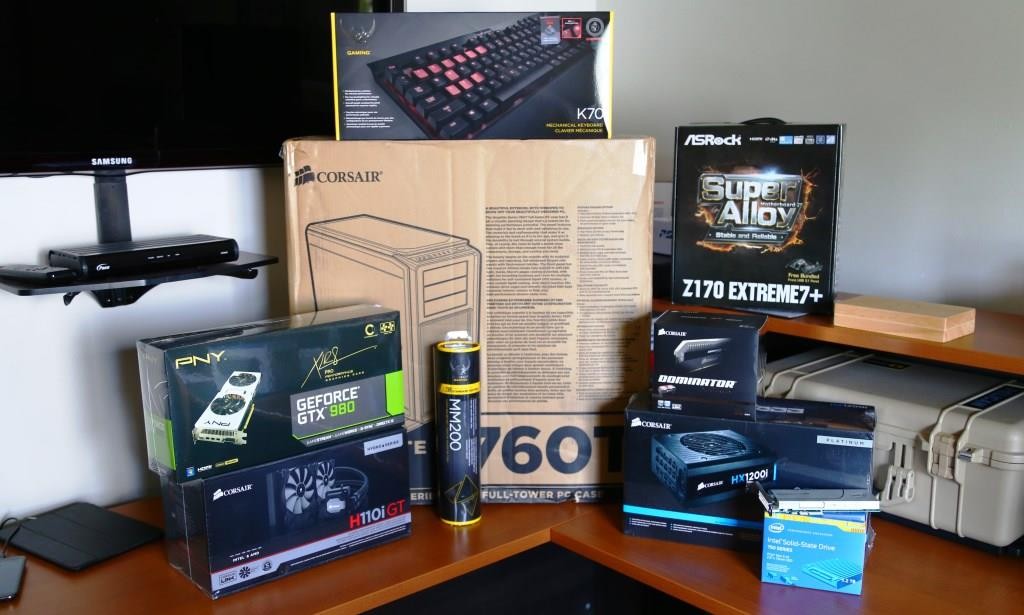There is no question that 2015 will be the year of NVMe and we are about to see storage performance increase like it never before has. Where yesterday several SAS enterprise SSDs would be necessary to reach 5GB/s transfer speed, it is now possible with a single SSD with the inevitability of 1 million IOPS becoming a common performance variable soon enough. NVMe will be right at home in the consumer, oem and enterprise market with the introduction of the Z170 chipset and Windows 10. This also provides us with the opportunity to return to a task that any PC enthusiast would cherish; building a new TSSDR Test Bench. So…let’s take a quick look at what arrived at our office just a few days ago:
And then…our office just a few hours later:
And the end result of a weekend of very early mornings and much frustration as the ability for things to go smoothly has never been a trait I could find:
As luck would have it, the cable that shipped with the motherboard front USB 3.1/3.0 front panel was bad, resulting in some very odd behavior, the most frustrating of which seemed to be corruption of the UEFI and system inability to boot. It may seem like the easiest thing to recognized but rest assured it wasn’t, especially when trouble codes were pointing to a different issue. In any case…this is what we accomplished a few hours later:
Before we get to the description, a huge thank you goes to Corsair, ASRock and PNY, all of whom were instrumental in getting this particular build underway. This report is being compiled on the system as we write, all the while some great PCMark 8 testing of a soon to be announced SSD is occurring in the background. The system is solid with the CPU at 4.8GHz and all 32GB of memory running at 3000 MHz….yup first time we accomplished that with just two clicks of the UEFI.
The system accommodates a few NVMe SSDs and the following pages will not only describe our chosen components and why, but also, we will throw in some system benchmarks and maybe even a quick RAID Intel 750 NVMe SSD benchmark or two. For now though, these are the listed specifications:
We compiled this system with three things in mind, power, low temps and silence; let’s see how we made out in the next few pages…
 The SSD Review The Worlds Dedicated SSD Education and Review Resource |
The SSD Review The Worlds Dedicated SSD Education and Review Resource | 


Feverish to see the 950 M.2s under sustained IPS.
FYI, Crucial has the 16GBx2 DDR4 UDIMM kit for $290. Easy way to max the RAM at 64GB. I’m looking at the same mobo and SSDs for a high speed VMware virtualization platform.
We have requested this memory for test purposes and I cannot speak highly enough with respect to the motherboard…just finished doing some testing with 3 NVMe M2 SSDs as a matter of fact… 3GB/s read and write. wit 0 footprint…stay tuned for an article.